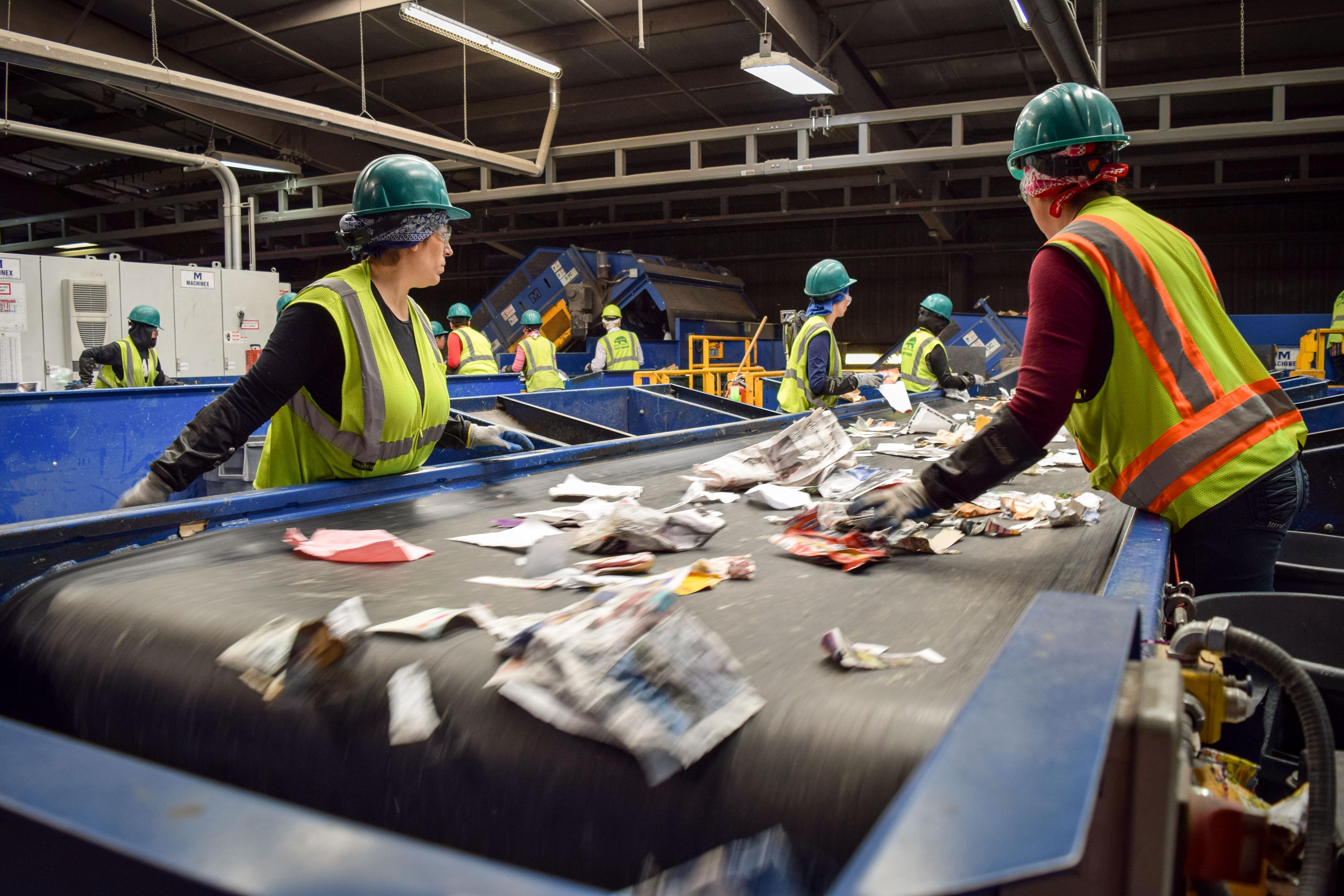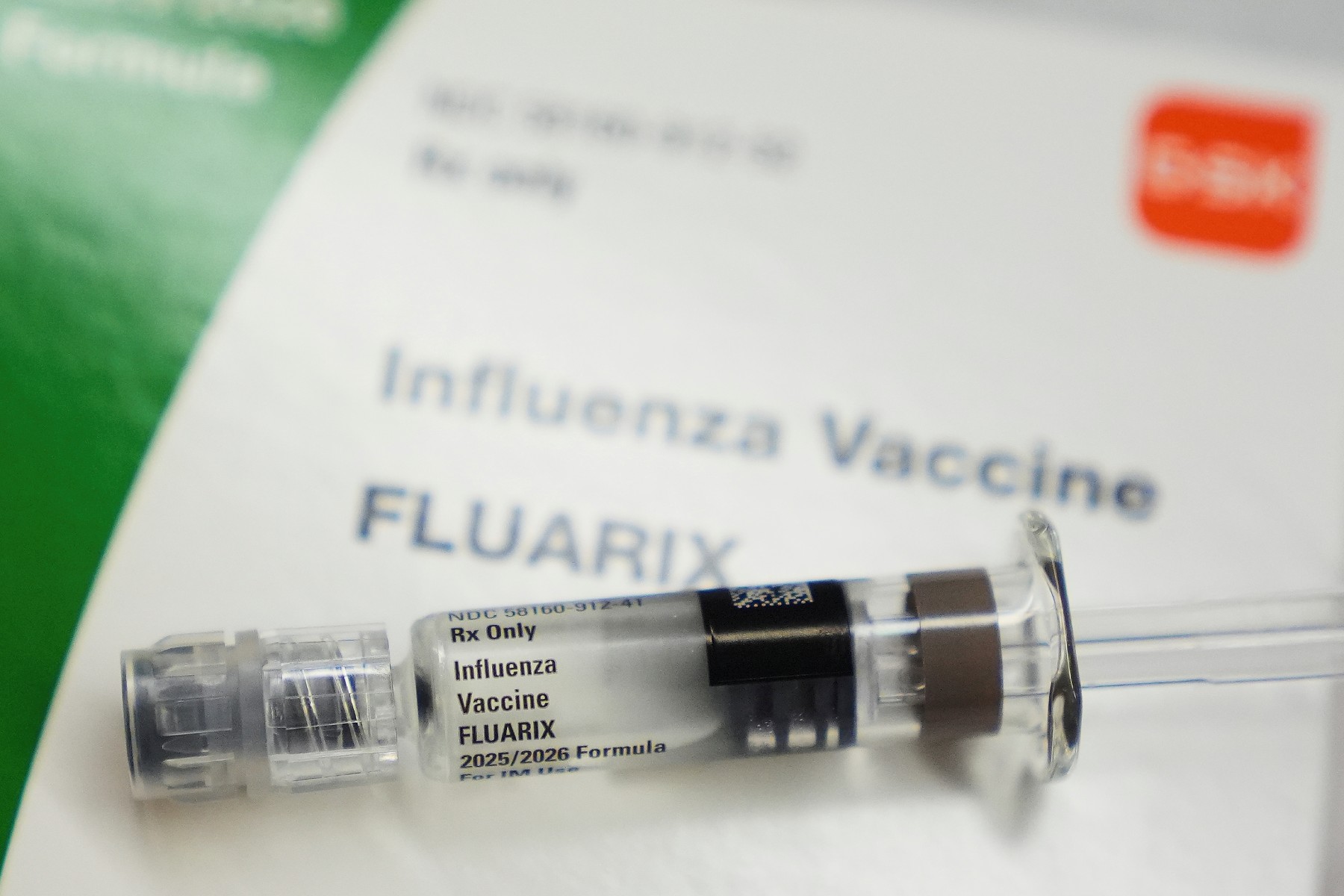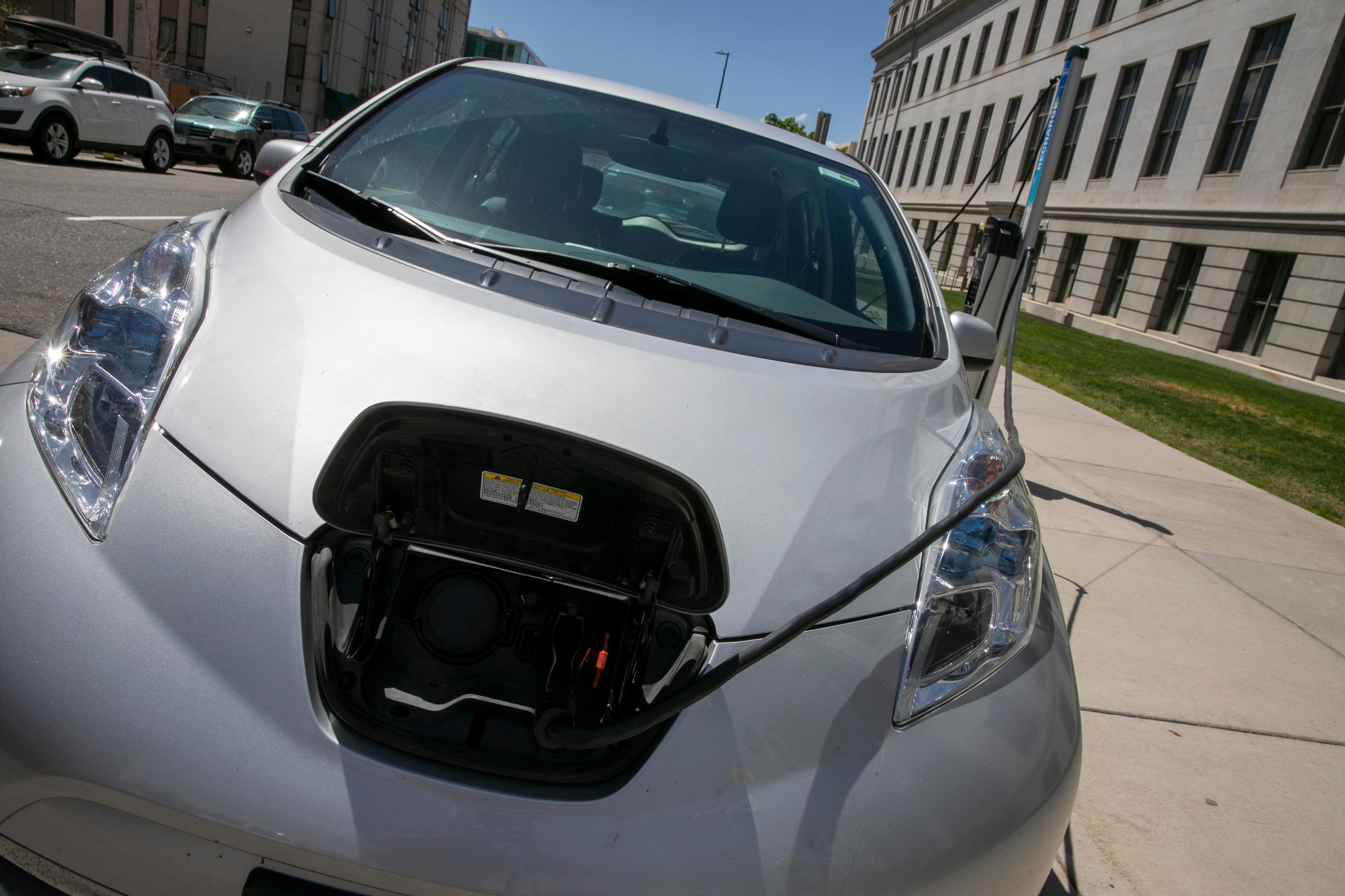
As a state, Colorado hasn’t been the greatest recycler. New restrictions imposed by China on contamination levels, mixed paper and plastics aren’t making things any easier.
China used to be the leading re-manufacturer of recyclable material, and took in over half of America’s recycling. These new restrictions are not something the industry can easily rebound from. West Coast states that heavily rely on exporting their recyclables to China have even resorted to landfilling their materials. Colorado isn’t at that level yet, but the ripples of China’s decision are being felt around the state.
Alpine Waste & Recycling is responsible for collecting the recyclables for the entire city of Denver. Brent Hildebrand, Alpine’s vice president of recycling, said they were shipping about 40 percent of their materials to foreign markets — the bulk going to China. So the new restrictions presented some challenges for Alpine.
“We had to add some more labor to the system to help sort better and get some of the contaminants out of the stream,” Hildebrand said. “But then on top of that we had to slow down the system so the people could see the materials a little easier.”
The new limit on recycling contaminants set by China is no more than 0.5 percent.
Since January, Alpine has increased its workforce by 15 percent to keep up with the 0.5 percent contamination limit. Hildebrand said they’re still sending as much recycling as they can to China, but they’ve had to find new buyers in other countries to supplement.

China is cracking down partly because American material recovery facilities have gotten a little lax about how much contamination goes into the recycling, said Wolf Kray with the Colorado Department of Public Health and Environment. For example, anytime a stray red Solo cup ended up in a bale of mixed paper, the materials were contaminated.
“Because the markets have been so high and there’s been such a demand from China,” Kray said. “We haven’t done the best job necessarily as far as limiting the waste that’s gone into the recycling stream.”
And that “we” includes not just the processing facilities but also anyone who might not be recycling in the most diligent way. Colorado has a problem with what the industry likes to call “wishcycling.” Since there’s no set standard, Kray said it can be tricky to know what each program does and does not accept. “It varies even in the metro area,” he said.
| Things We Shouldn't Be Tossing In Our Purple Bins... But Probably Are* |
|---|
|
| *Recyclables vary by collector statewide. Be sure to check with your local operator for acceptable items. |
“There’s a lot of wishful recycling that goes on where people assume that if it’s got the recycling arrows on it that means it’s automatically a recyclable material and that’s certainly not the case,” Kray pointed out.
Even if the recognizable arrows are there, it doesn’t mean a facility can process or re-sell it. Some things recyclers get are not as questionable. At the Boulder County Recycling Center, conservation manager Darla Arians pointed out every time a shocking object came down the conveyor belt where workers were sorting.
“You can see that huge piece of metal he just pulled out!” she exclaimed. “That would destroy our OCC screen — our cardboard screen — which is the first piece of equipment that the material hits. If that had gone past him, the facility would have to shut down.”
Another way Alpine and other haulers across the state are handling these changes? They’re shipping material to Boulder County. Boulder has become a popular spot thanks to a new plastic sorting machine and the facility’s reliance on American buyers. They’ve been able to save more money than other recyclers around the state, putting Boulder in a position where they can help other haulers.
“Our inbound tonnage has gone up around 1,500 to 2,000 tons per month from other MRFs and haulers in the region because our gate fees are lower here than they are elsewhere,” she said.
In a millisecond, Boulder’s plastic sorting machine is able to tell the difference between a milk jug and a shampoo bottle using infrared detection. It then uses its 100-horse power air jet to shoot the material into the right container. The machine sorts more efficiently than any person, and Arians said a few are considering “this type of equipment, and with the new restrictions from China, they pretty much have to in order to keep up.”

Ninety-eight percent of Boulder’s material goes to American buyers for remanufacturing. Even with Boulder taking other counties’ materials, many are still scrambling to find new markets for a lot of it.
“You have essentially this big buildup of all the recyclables that are still getting collected and stored at recycling centers that need to go somewhere,” CDPHE’s Wolf Kray said. “So, because there’s more generation, essentially it’s devaluing the prices so that’s tough for the recyclers who aren’t making as much money on the actual end products when they sell them.”
Market values for recycled paper, plastics, aluminum, etc. have plummeted since restrictions went into place. That affects all recyclers, even ones like Boulder County that export very little because they sell most of their material stateside.
“If we get to the point where we’re getting a zero dollar or we were gonna be charged for a particular type of material, then we will hold on to it for 30 days and see what sort of pricing we can get in the next month,” Arians said.

For Kray, the solution lies in developing and bolstering domestic markets for recyclables. To that end, CDPHE offers grants to organizations to help develop recycling infrastructure in the state. In 2017, the program handed out 22 grants that went as high as $400,000. An Iowa company called Rewall that buys waste and turns it into building material is expanding to Colorado with the help of the grant program.
Another solution Kray mentioned has to do with the three R’s everyone learned in elementary school — reduce, reuse and recycle. Kray said there should be more emphasis on the first two and less reliance on the third.








